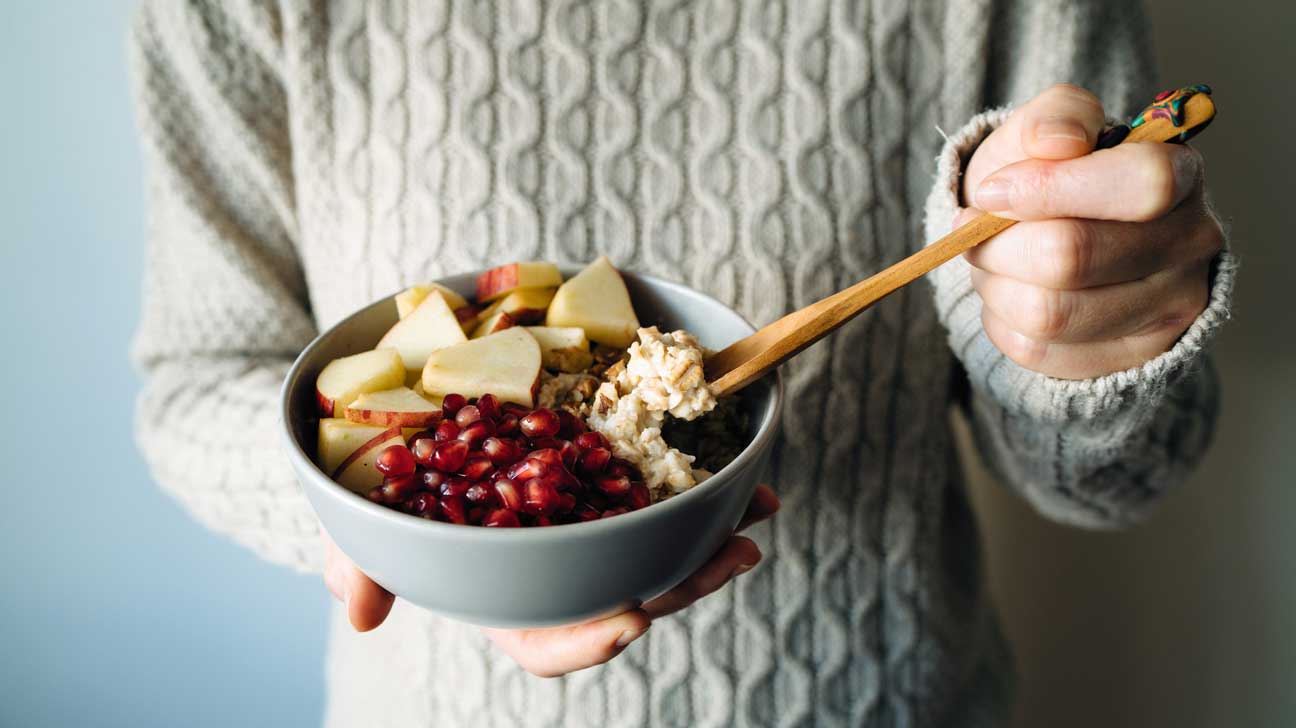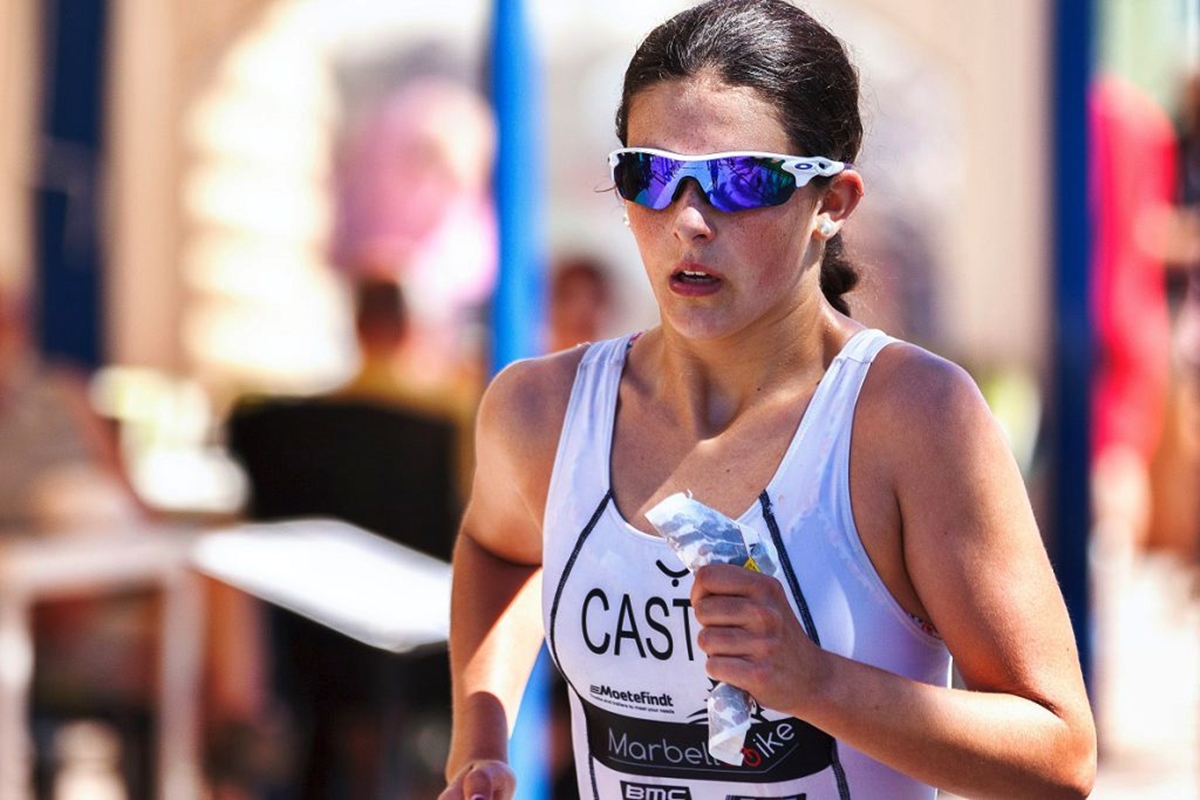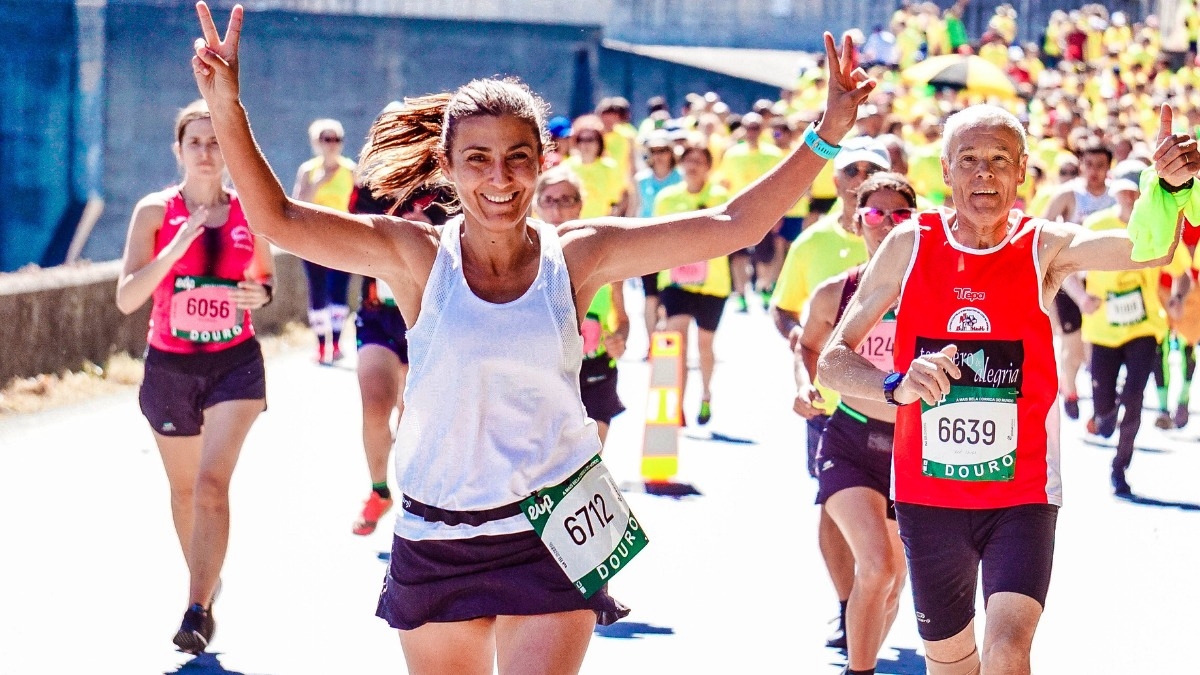

Featured
What To Eat After Jogging
Modified: January 2, 2024
Discover the best post-jogging fuel with our featured selection of nutritious foods. Replenish your energy levels and aid muscle recovery for a satisfying workout session.
Introduction
When it comes to maintaining a healthy and active lifestyle, jogging is a popular choice for many. Not only does it help improve cardiovascular fitness and promote weight loss, but it also offers a host of mental and emotional benefits. Whether you’re a beginner or an experienced runner, fueling your body with the right nutrients after a jog is crucial for optimal recovery and performance.
Post-jogging nutrition plays a vital role in replenishing glycogen stores, repairing muscle tissues, and preventing muscle soreness. Consuming the right balance of macronutrients can enhance your body’s recovery process, support muscle growth, and boost your energy levels.
In this article, we will explore the importance of post-jogging nutrition and reveal the top foods to eat after your run. From carbohydrates and protein to healthy fats and hydration, we will delve into the key macronutrients your body needs for effective post-jog recovery.
Importance of Post-Jogging Nutrition
Proper nutrition after a jogging session is essential for your body’s recovery and overall well-being. When you exercise, your body depletes stored glycogen, breaks down muscle tissues, and undergoes oxidative stress. Consuming the right nutrients post-jog helps replenish energy stores, repair damaged muscles, and reduce inflammation.
One of the main goals of post-jogging nutrition is to restore glycogen levels. Glycogen is the primary fuel source for the muscles, and it gets depleted during prolonged exercise. Consuming carbohydrates after a jog helps replenish glycogen stores, providing energy for your next workout and preventing fatigue. Including a mix of complex carbohydrates like whole grains, fruits, and vegetables in your post-jog meal can ensure sustained energy levels and proper glycogen synthesis.
Protein is another vital nutrient for post-jogging recovery. Engaging in exercise, especially intense workouts like jogging, leads to muscle breakdown. Adequate protein intake after running helps repair and rebuild the damaged muscle tissues. It also supports muscle growth, strength, and maintenance. Including lean sources of protein such as eggs, yogurt, and lean meats in your post-jog meal can optimize your body’s recovery process.
In addition to carbohydrates and protein, healthy fats are also important for post-jog recovery. Healthy fats, such as those found in avocados, nuts, and seeds, provide essential fatty acids that aid in reducing inflammation and promoting joint health. They also help the body absorb fat-soluble vitamins and provide a source of long-lasting energy.
Lastly, proper hydration is crucial for post-jogging recovery. When you run, your body loses water through sweat, which can lead to dehydration if not replenished. Rehydrating with water or electrolyte-rich beverages helps restore fluid balance, optimize cell function, and regulate body temperature. Consuming enough fluids after your jog is essential to support all other aspects of recovery.
Incorporating a well-balanced meal or snack containing the right combination of macronutrients, including carbohydrates, protein, healthy fats, and fluids, after your jog can help maximize your recovery, minimize muscle soreness, and improve your overall performance in future workouts.
Key Macronutrients for Post-Jogging Recovery
After a vigorous jog, your body requires specific macronutrients to aid in recovery and replenish energy stores. These macronutrients include carbohydrates, protein, healthy fats, and hydration. Let’s explore each of these key macronutrients and their role in post-jogging recovery:
-
Carbohydrates:
Carbohydrates are the primary source of energy for your body, especially during exercise. After jogging, it is important to consume complex carbohydrates such as whole grains, fruits, and vegetables. These carbohydrates provide long-lasting energy, help replenish glycogen stores, and restore blood glucose levels. Including carbohydrates in your post-jog meal or snack ensures that your body has enough fuel for your next workout and helps prevent muscle fatigue.
-
Protein:
Protein is essential for repairing and rebuilding muscle tissues that are damaged during exercise. Including lean sources of protein such as eggs, yogurt, lean meats, or plant-based options like tofu or legumes in your post-jogging meal promotes muscle recovery and growth. Protein also helps to reduce muscle soreness and aids in the synthesis of enzymes, hormones, and antibodies.
-
Healthy Fats:
Contrary to popular belief, fats are an important part of a balanced post-jogging meal. Healthy fats, found in foods like avocados, nuts, seeds, and fatty fish like salmon, provide the body with essential fatty acids and help reduce inflammation caused by exercise. They also aid in the absorption of fat-soluble vitamins and provide a source of sustained energy. Including a small portion of healthy fats in your post-jog meal can support joint health, enhance nutrient absorption, and promote overall recovery.
-
Hydration:
Proper hydration is crucial for post-jogging recovery. During exercise, your body loses fluids through sweat, which can lead to dehydration if not replenished. Rehydrating with water or electrolyte-rich beverages helps restore fluid balance, regulate body temperature, and support the delivery of nutrients to your muscles. Drinking enough fluids after your jog ensures optimal recovery and prevents fatigue and muscle cramps.
By including these key macronutrients in your post-jogging meal or snack, you can optimize your body’s recovery process, support muscle repair and growth, and prepare yourself for your next jogging session.
Carbohydrates
Carbohydrates are an essential macronutrient that plays a crucial role in post-jogging recovery. When you engage in physical activity like jogging, your body relies heavily on carbohydrates for energy. Consuming the right type and amount of carbohydrates after your jog is essential for replenishing glycogen stores and restoring blood glucose levels.
Complex carbohydrates, such as whole grains, fruits, and vegetables, are optimal choices for post-jogging nutrition. These carbohydrates provide a steady release of energy, ensuring sustained fuel for your muscles and preventing fatigue. Whole grains like quinoa, brown rice, and whole wheat bread are rich in fiber, vitamins, and minerals, making them excellent options to include in your post-jog meal or snack.
Fruits and vegetables are also great sources of carbohydrates that offer additional benefits. These foods provide important vitamins, minerals, and antioxidants that support overall health and aid in post-exercise recovery. Some great choices include bananas, berries, oranges, spinach, and sweet potatoes. They not only provide carbohydrates but also offer essential nutrients that assist in reducing inflammation and promoting muscle repair.
Incorporating carbohydrates into your post-jogging meal or snack is crucial for proper recovery and optimal performance in subsequent workouts. Aim for a balance of complex carbohydrates to replenish glycogen stores and provide sustained energy. Whether it’s a bowl of oatmeal topped with berries, a whole grain wrap with lean protein and veggies, or a side of roasted sweet potatoes with grilled chicken, make sure to include carbohydrates in your post-jog meal to support your body’s recovery process.
Protein
Protein is a crucial macronutrient for post-jogging recovery as it helps repair and rebuild muscle tissues that are broken down during exercise. Including an adequate amount of protein in your post-jog meal or snack can support muscle recovery, promote muscle growth, and reduce muscle soreness.
There are various sources of protein that you can incorporate into your post-jogging nutrition. Animal-based options like eggs, lean meats, poultry, and fish are complete proteins that contain all essential amino acids necessary for muscle repair. Eggs are particularly beneficial as they are rich in high-quality protein, vitamins, and minerals.
If you follow a plant-based or vegetarian diet, you can obtain protein from sources such as tofu, tempeh, lentils, beans, and quinoa. These plant-based proteins provide a good balance of essential amino acids and are also rich in fiber, minerals, and antioxidants.
In addition to the protein content, it’s important to consider the timing of protein consumption after jogging. Consuming protein within an hour after your run is recommended as it allows for optimal muscle protein synthesis. This process helps repair and rebuild muscles, supporting the recovery process.
Combining carbohydrates and protein in your post-jogging snack or meal is even more beneficial. The carbohydrates provide the necessary energy to replenish glycogen stores, while the protein helps repair and rebuild muscle tissues. A few examples of protein-rich post-jogging snacks include Greek yogurt with berries, a protein smoothie with almond milk and banana, or a chicken and vegetable stir-fry with brown rice.
By incorporating protein into your post-jogging nutrition, you can support muscle recovery and growth, minimize muscle soreness, and enhance your overall performance in future workouts.
Healthy Fats
While it may be commonly misunderstood, incorporating healthy fats into your post-jogging nutrition is crucial for optimal recovery and overall well-being. Healthy fats provide essential fatty acids that support various bodily functions and play a key role in reducing inflammation caused by exercise.
Some excellent sources of healthy fats include avocados, nuts, seeds, and fatty fish like salmon, mackerel, and sardines. Avocados, for example, are rich in monounsaturated fats, which not only provide a source of healthy fat but also offer numerous vitamins, minerals, and antioxidants. Nuts and seeds, such as almonds, walnuts, flaxseeds, and chia seeds, are packed with omega-3 fatty acids that help reduce inflammation and support heart health.
Incorporating a small portion of healthy fats into your post-jog meal or snack can aid in nutrient absorption and provide a source of sustained energy. Including healthy fats alongside carbohydrates and protein can also help slow down digestion, ensuring a steady release of energy and keeping you satisfied for longer.
It’s important, however, to be mindful of portion sizes when consuming healthy fats, as they are calorically-dense. Aim to include about a handful of nuts, a quarter of an avocado, or a tablespoon of seeds in your post-jogging meal or snack.
Remember, not all fats are created equal, and it’s crucial to prioritize healthy fats in your post-jogging nutrition. By including sources of healthy fats, you can support joint health, enhance nutrient absorption, reduce inflammation, and promote overall recovery.
Hydration
Proper hydration is essential for your overall health and plays a critical role in post-jogging recovery. When you run, your body loses fluids through sweat, which can lead to dehydration if not replenished. Hydrating properly after your jog is crucial for restoring fluid balance, regulating body temperature, and supporting the delivery of nutrients to your muscles.
The amount of water you need to consume after jogging depends on factors such as the intensity of your run, weather conditions, and your body’s hydration needs. As a general guideline, aim to drink at least 16-20 ounces of water within an hour after your jog. This will help replace the fluids lost during exercise and ensure proper rehydration.
In addition to water, you can also replenish electrolytes lost through sweat by consuming beverages like sports drinks or coconut water. These options contain important minerals such as sodium, potassium, and magnesium that help maintain electrolyte balance in your body.
It’s important to listen to your body’s thirst cues and make sure to drink enough fluids throughout the day, not just after your jog. Staying hydrated will not only optimize your recovery but also support overall health and performance in future workouts.
Remember that hydrating properly after jogging is just as important as drinking enough fluids during your run. Make it a habit to carry a water bottle with you during your jog and continue hydrating adequately after you finish.
By prioritizing hydration as part of your post-jogging routine, you can support the proper recovery of your body, prevent fatigue and muscle cramps, and maintain optimal performance in your future workouts.
Top 10 Foods to Eat After Jogging
After a rejuvenating jog, it’s important to refuel your body with nutrient-rich foods that promote recovery and provide the necessary energy for future workouts. Here are the top 10 foods to eat after jogging:
-
Banana
Loaded with carbohydrates, fiber, and potassium, bananas are an excellent choice for post-jogging nutrition. They provide a quick source of energy, help replenish electrolytes, and support muscle function.
-
Yogurt
Low-fat Greek yogurt is packed with protein, calcium, and probiotics that aid in muscle recovery, promote bone health, and support digestion. Pair it with fruits or nuts for added nutrients and flavor.
-
Oatmeal
Rich in complex carbohydrates and fiber, oatmeal provides sustained energy and helps replenish glycogen stores. Add some berries or a dollop of nut butter for a delicious and nutritious post-jog meal.
-
Eggs
Eggs are a complete protein source that provides essential amino acids necessary for muscle repair and growth. They are also rich in vitamins, minerals, and antioxidants. Enjoy them boiled, scrambled, or in an omelette.
-
Salmon
Packed with omega-3 fatty acids and high-quality protein, salmon supports muscle recovery, reduces inflammation, and promotes heart health. Grill or bake a salmon fillet for a nutritious post-jog meal.
-
Sweet potatoes
Sweet potatoes are a nutrient-dense carbohydrate source that provides energy, fiber, and essential vitamins. Bake or roast them for a satisfying and nourishing post-jogging snack.
-
Spinach
Spinach is rich in antioxidants, iron, and vitamins A, C, and K. It supports muscle recovery, bone health, and immune function. Add it to salads, omelettes, or smoothies for a nutrient boost.
-
Quinoa
Quinoa is a protein-rich, gluten-free grain that provides essential amino acids, fiber, and minerals. It aids in muscle recovery, satiety, and digestion. Replace rice with quinoa in your post-jog meals for added nutrition.
-
Nuts and seeds
Almonds, walnuts, flaxseeds, and chia seeds are excellent sources of healthy fats, protein, and fiber. They support muscle recovery, reduce inflammation, and provide sustained energy. Enjoy them as a snack or sprinkle them on yogurt or salads.
-
Watermelon
Stay hydrated and satisfy your sweet tooth with juicy watermelon. It is high in water content, electrolytes, and vitamins A and C, making it a refreshing choice for post-jogging hydration.
By incorporating these nutrient-dense foods into your post-jogging meals and snacks, you can maximize your recovery, support muscle growth, and fuel your body for future workouts.
Banana
When it comes to post-jogging nutrition, bananas are a fantastic choice. They are not only conveniently portable but also packed with essential nutrients that aid in recovery and replenish energy stores.
One of the main reasons why bananas are popular among athletes and runners is their high carbohydrate content. Carbohydrates are the body’s primary source of energy, and consuming carbohydrates after a jog helps replenish glycogen stores, which can become depleted during exercise.
In addition to their carbohydrate content, bananas are also rich in potassium. Potassium is an electrolyte that plays a vital role in maintaining proper muscle function and preventing muscle cramps. Since potassium is lost through sweat during exercise, consuming a banana after your jog can help replenish this important electrolyte.
Bananas also provide a good amount of fiber, which aids in digestion and helps regulate blood sugar levels. The fiber content in bananas can promote feelings of fullness and satiety, making them a satisfying post-jogging snack or addition to your meal.
Furthermore, bananas are a rich source of essential vitamins and minerals. They contain vitamin C, which acts as an antioxidant and helps support the immune system. Bananas also contain vitamin B6, which plays a role in brain development and function.
There are many ways to incorporate bananas into your post-jog nutrition. You can eat a banana as is for a quick and convenient snack, or add slices to yogurt, oatmeal, or smoothies for added flavor and nutrients. They can also be mashed and used as a natural sweetener in baked goods or as a topping for pancakes.
Overall, bananas are an excellent choice for replenishing energy, supporting muscle function, and providing essential nutrients after a jog. They are a versatile and nutritious fruit that can fuel your body and aid in post-workout recovery.
Yogurt
Yogurt is a fantastic option for post-jogging nutrition, offering a combination of protein, carbohydrates, and beneficial bacteria that support muscle recovery and promote overall health.
One of the main benefits of yogurt is its high protein content. Protein is essential for muscle repair and growth, making it an important nutrient to consume after exercise. Greek yogurt, in particular, is known for its higher protein content compared to regular yogurt. Including yogurt in your post-jogging meal or snack provides your body with the amino acids it needs to repair and rebuild muscle tissues.
In addition to protein, yogurt is also a good source of carbohydrates. These carbohydrates help replenish glycogen stores that may become depleted during exercise, providing your body with the necessary fuel for recovery and future workouts.
Another advantage of yogurt is the presence of probiotics, which are beneficial bacteria that support a healthy gut. These probiotics can improve digestion, enhance nutrient absorption, and boost the immune system. Choosing yogurt with live and active cultures ensures that you’re getting these beneficial probiotics.
When selecting yogurt, opt for plain varieties without added sugars to avoid unnecessary additives. You can add natural sweetness and flavor by including fresh fruits, a drizzle of honey, or a sprinkle of nuts and seeds. This way, you’ll be able to control the amount of added sugars in your yogurt and customize it according to your taste preferences.
Yogurt can be enjoyed on its own as a post-jogging snack or incorporated into other dishes. You can blend it into a post-workout smoothie, use it as a base for overnight oats, or mix it with fruits and nuts for a delicious and nutritious parfait.
Overall, yogurt is a versatile and nutrient-rich option for post-jogging nutrition. It provides protein, carbohydrates, and probiotics that support muscle recovery, replenish energy stores, and promote gut health.
Oatmeal
Oatmeal is a nutritious and filling option for post-jogging nutrition, offering a variety of health benefits that can support your recovery and fuel your body for the day ahead.
One of the main reasons why oatmeal is often recommended after a jog is its high carbohydrate content. Carbohydrates are essential for replenishing glycogen stores that may become depleted during exercise. Oatmeal provides complex carbohydrates, which are digested slowly and release a sustained amount of energy, keeping you fueled for a longer period of time.
In addition to carbohydrates, oatmeal is also a great source of fiber. Fiber aids in digestion, helps regulate blood sugar levels, and promotes feelings of fullness. This can be beneficial after a jog, as it can prevent overeating and provide a steady source of energy throughout the day.
Oats are also rich in vitamins and minerals, including manganese, phosphorus, and magnesium. These nutrients are important for various bodily functions, such as energy production and bone health.
Another advantage of oatmeal is its versatility. You can customize your oatmeal based on your preferences and nutritional needs. For additional protein, you can add a scoop of protein powder or a dollop of Greek yogurt. For added flavor and nutrients, try topping your oatmeal with fresh fruits, nuts, seeds, or a drizzle of honey.
When choosing oats, opt for steel-cut or rolled oats instead of instant oats, as they retain more nutrients and have a lower glycemic index. This means that they provide a slower release of sugar into the bloodstream, preventing spikes and crashes in energy levels.
To prepare oatmeal, simply cook the oats in water or your choice of milk according to the package instructions. You can also make overnight oats by soaking oats in milk or yogurt overnight and adding your desired toppings in the morning.
Overall, oatmeal is a wholesome and nourishing option for post-jogging nutrition. It provides carbohydrates, fiber, and essential nutrients that can support your recovery, keep you satiated, and provide a steady release of energy throughout the day.
Eggs
Eggs are a fantastic choice for post-jogging nutrition, offering an array of essential nutrients that support muscle recovery, provide satiety, and keep you energized throughout the day.
One of the key benefits of eggs is their high protein content. Protein plays a crucial role in post-workout recovery as it helps repair and rebuild muscle tissues that may have been damaged during exercise. In fact, eggs are considered a complete protein, meaning they contain all the essential amino acids that your body needs for optimal muscle repair and growth.
In addition to protein, eggs are rich in vitamins and minerals that support overall health. They are a good source of vitamins B2, B6, B12, and D, as well as important minerals like iron and selenium. These nutrients are involved in various biological processes, including energy production and immune function.
Contrary to previous misconceptions, eggs do not negatively impact cholesterol levels for most people. They contain healthy fats, including omega-3 fatty acids, which are beneficial for heart health. Moreover, eggs are a source of dietary cholesterol, which has been shown to have limited impact on blood cholesterol levels for the majority of individuals.
There are numerous ways to incorporate eggs into your post-jogging meal or snack. You can enjoy them boiled, scrambled, poached, or as an omelette. Pair eggs with whole wheat toast, fruits, or vegetables to create a balanced meal.
If you’re looking for extra convenience, consider preparing a batch of hard-boiled eggs in advance that you can easily grab and enjoy after your run. You can also make a protein-rich post-jogging smoothie by adding a raw egg to your favorite blend of fruits, vegetables, and protein powder.
It’s important to note that proper food handling and cooking practices should always be followed when consuming eggs to minimize the risk of foodborne illnesses. Ensure that eggs are cooked thoroughly to reduce the risk of salmonella contamination.
Overall, eggs are a versatile and nutrient-dense option for post-jogging nutrition. They provide high-quality protein, essential vitamins and minerals, and healthy fats that support muscle recovery, promote satiety, and contribute to overall well-being.
Salmon
Salmon is an excellent choice for post-jogging nutrition, offering a variety of nutrients that support muscle recovery, reduce inflammation, and promote overall health.
One of the main benefits of salmon is its high protein content. Protein plays a crucial role in repairing and rebuilding muscle tissues that may have been broken down during exercise. Consuming protein-rich foods like salmon after a jog can help enhance muscle repair and support the growth of lean muscle mass.
In addition to protein, salmon is also rich in omega-3 fatty acids, specifically EPA (eicosapentaenoic acid) and DHA (docosahexaenoic acid). These omega-3 fatty acids have been extensively studied for their anti-inflammatory properties. By reducing inflammation, omega-3 fatty acids can help alleviate muscle soreness and promote a faster recovery after exercise.
Salmon is also an excellent source of vitamin D, which plays a crucial role in bone health, immune function, and muscle strength. Including salmon in your post-jogging meal can help ensure adequate vitamin D intake, especially if you spend limited time outdoors.
When purchasing salmon, opt for wild-caught or sustainably-farmed salmon to ensure the highest quality and minimize environmental impact. It’s recommended to prepare salmon by grilling, baking, or broiling it to retain its nutrients and natural flavors.
To incorporate salmon into your post-jogging meal, consider creating a delicious salmon salad with mixed greens, quinoa, and olive oil dressing. You can also enjoy salmon on whole wheat toast or pair it with steamed vegetables for a well-rounded and nutritious meal.
If you don’t consume fish, you can still obtain omega-3 fatty acids from other sources such as walnuts, chia seeds, flaxseeds, or algae-based supplements.
Overall, salmon is a nutrient-dense and versatile protein source that offers multiple benefits for post-jogging nutrition. Including salmon in your diet can support muscle recovery, reduce inflammation, and contribute to your overall health and well-being.
Sweet Potatoes
Sweet potatoes are a nutrient-packed option that can provide a range of benefits when included in your post-jogging nutrition. They are not only delicious but also rich in carbohydrates, fiber, and essential vitamins.
As a complex carbohydrate, sweet potatoes are an excellent source of energy for your body after a jog. They help replenish glycogen stores that may be depleted during exercise, ensuring you have the energy you need for recovery and subsequent workouts. Unlike simple carbohydrates, sweet potatoes release energy slowly, providing a sustained source of fuel.
In addition to their carbohydrate content, sweet potatoes are also high in dietary fiber. Fiber plays a crucial role in digestion, helps regulate blood sugar levels, and promotes feelings of fullness. Including fiber-rich foods like sweet potatoes in your post-jogging meal can help keep you satisfied and prevent overeating later in the day.
Furthermore, sweet potatoes are packed with essential vitamins and minerals, including vitamins A, C, and B6, as well as potassium and manganese. These nutrients are involved in various bodily functions, such as immune function, energy production, and bone health.
There are countless ways to enjoy sweet potatoes as part of your post-jogging nutrition. You can bake, boil, or roast them and enjoy them as a side dish or main component of your meal. You can also try incorporating sweet potatoes into salad bowls, wraps, or even as a base for a nutrient-rich smoothie.
For an added nutritional boost, consider topping your sweet potatoes with sources of protein and healthy fats, such as Greek yogurt, nuts, seeds, or avocado. This combination will not only enhance the flavor but also provide a more balanced post-jogging meal.
Overall, sweet potatoes are a versatile and nutritious option for post-jogging nutrition. They provide complex carbohydrates, fiber, and essential vitamins and minerals that support recovery, enhance energy levels, and promote overall well-being.
Spinach
When it comes to post-jogging nutrition, spinach is a leafy green powerhouse that offers a wealth of health benefits. Packed with essential nutrients, spinach can support muscle recovery and provide your body with the nutrients it needs to thrive.
One of the significant advantages of including spinach in your post-jogging meal is its rich antioxidant content. Antioxidants protect the body from oxidative stress caused by exercise and help reduce inflammation. Spinach is particularly abundant in antioxidants like vitamin C, vitamin E, and beta-carotene.
In addition to its antioxidant properties, spinach is also an excellent source of vitamins and minerals. It is particularly rich in vitamins A, C, and K, as well as iron, calcium, and magnesium. These nutrients play crucial roles in supporting bone health, immune function, and muscle recovery.
Furthermore, spinach is low in calories and carbohydrates while being high in fiber, making it a great choice for those looking to manage their calorie intake or maintain healthy blood sugar levels. The fiber content in spinach promotes satiety, helps regulate digestion, and assists in maintaining steady energy levels.
There are numerous ways to incorporate spinach into your post-jogging nutrition. Add a handful of fresh spinach leaves to your post-workout smoothie for an extra boost of vitamins and minerals. You can also sauté spinach with garlic and olive oil as a side dish or toss it in salads for a nutrient-packed crunch.
To maximize the absorption of its nutrients, consume spinach with a source of healthy fats, as many of its vitamins are fat-soluble. Adding avocado, olive oil, or nuts to your spinach dish will enhance the absorption of fat-soluble vitamins, such as vitamin E and beta-carotene.
Overall, spinach is a versatile and nutrient-dense option for post-jogging nutrition. Its rich antioxidant content, along with its array of vitamins and minerals, can support muscle recovery, reduce inflammation, and promote overall health and well-being.
Quinoa
Quinoa is a versatile and nutrient-dense grain that can be a valuable addition to your post-jogging nutrition. Packed with a range of essential nutrients, quinoa can support muscle recovery, provide sustained energy, and contribute to overall well-being.
One of the main benefits of quinoa is its high protein content. It contains all nine essential amino acids, making it a complete protein source. Protein is crucial for post-workout recovery as it helps repair and rebuild muscle tissues that may have been damaged during exercise. Including quinoa in your post-jogging meal provides the necessary amino acids to support muscle recovery and growth.
In addition to protein, quinoa is a good source of complex carbohydrates and dietary fiber. These carbohydrates provide a sustained source of energy, ensuring you stay fueled for longer. The fiber content in quinoa aids in digestion, promotes feelings of fullness, and helps regulate blood sugar levels.
Quinoa is also rich in vitamins and minerals such as iron, magnesium, phosphorus, and manganese. These nutrients play crucial roles in energy production, muscle function, and bone health.
One of the unique qualities of quinoa is that it is naturally gluten-free, making it suitable for individuals with gluten sensitivities or those following a gluten-free diet. It is also a low glycemic index food, which means it has a minimal impact on blood sugar levels.
To incorporate quinoa into your post-jogging meal, prepare it as a versatile base for salads, stir-fries, or grain bowls. You can also enjoy it as a warm side dish or add it to soups for extra texture and nutrition.
If you’re looking for a convenient option, you can find pre-cooked quinoa in many grocery stores, allowing you to enjoy its benefits with minimal preparation time.
Overall, quinoa is a nutrient-dense grain that can be a valuable addition to your post-jogging nutrition. Its protein content, along with its carbohydrates, fiber, and essential vitamins and minerals, can support muscle recovery, provide sustained energy, and contribute to your overall well-being.
Nuts and Seeds
Nuts and seeds are nutritional powerhouses that can be an excellent addition to your post-jogging nutrition. Packed with healthy fats, protein, fiber, and essential vitamins and minerals, they provide a range of benefits that support recovery and overall health.
One of the main advantages of nuts and seeds is their high content of healthy fats. These fats, including monounsaturated and polyunsaturated fats, are essential for hormone production, brain function, and reducing inflammation. Consuming healthy fats after a jog can aid in muscle recovery, promote satiety, and provide a sustained source of energy.
In addition to healthy fats, nuts and seeds are also good sources of protein. Protein is crucial for post-workout recovery as it helps repair and rebuild muscle tissues. Including nuts and seeds in your post-jogging nutrition provides the necessary amino acids to support muscle repair and growth.
Nuts and seeds are also rich in fiber, which aids in digestion, promotes feelings of fullness, and helps regulate blood sugar levels. This can assist in maintaining stable energy levels throughout the day and prevent overeating.
Furthermore, nuts and seeds are packed with essential vitamins and minerals. For example, almonds are a good source of vitamin E and magnesium, while flaxseeds are rich in omega-3 fatty acids and fiber. Including a variety of nuts and seeds in your post-jogging nutrition ensures you benefit from a wide range of nutrients.
One easy way to enjoy nuts and seeds after a jog is to have a handful as a snack. You can also sprinkle them on top of a salad or add them to yogurt or smoothies for added texture and nutrition. Just be mindful of portion sizes, as nuts and seeds are calorie-dense.
Remember to opt for unsalted and raw or roasted nuts and seeds whenever possible to avoid unnecessary sodium and additional oils. It’s also a good idea to choose a mix of different nuts and seeds to benefit from their unique nutritional profiles.
Incorporating a variety of nuts and seeds into your post-jogging nutrition can provide a range of health benefits, including supporting muscle recovery, promoting satiety, and contributing to your overall well-being.
Watermelon
Watermelon is a refreshing and hydrating fruit that can be a perfect choice for your post-jogging nutrition. With its high water content, essential nutrients, and natural sweetness, watermelon offers a range of benefits for recovery and overall well-being.
One of the main advantages of watermelon is its hydrating properties. Staying hydrated after a jog is crucial for replenishing fluid levels and supporting your body’s recovery process. With its high water content of around 92%, watermelon is an excellent choice for rehydration.
In addition to hydration, watermelon is a great source of vitamins A and C, as well as antioxidants like lycopene. These nutrients play a vital role in supporting immune function, reducing inflammation, and protecting against oxidative stress caused by exercise.
Watermelon is also low in calories and fat, making it an ideal snack for those looking to manage their weight or maintain a healthy lifestyle. Its natural sweetness can help satisfy sugar cravings without adding excessive calories.
Another unique quality of watermelon is its high levels of the amino acid citrulline. Citrulline is converted into arginine in the body, which plays a role in improving blood flow and enhancing exercise performance. While more research is needed, incorporating watermelon into your post-jogging nutrition may provide potential benefits for recovery.
Enjoying watermelon after a jog is simple and refreshing. You can have it on its own, or get creative by incorporating it into salads, smoothies, or fruit skewers. For an extra burst of flavor, try pairing watermelon with a sprinkle of feta cheese, a squeeze of lime juice, or a handful of fresh mint leaves.
Remember that watermelon is best enjoyed when it’s ripe, so look for a watermelon that feels heavy for its size and has a deep, vibrant color.
Overall, watermelon is a hydrating and nutrient-rich fruit that can be a delicious addition to your post-jogging nutrition. It provides hydration, essential vitamins, antioxidants, and natural sweetness, making it a refreshing and nutritious choice for recovery.
Food Tips and Recommendations
When it comes to post-jogging nutrition, there are a few key tips and recommendations to keep in mind to ensure you’re fueling your body properly for recovery and optimal performance. Here are some valuable food tips to consider:
- Timing is important: Aim to consume a balanced meal or snack containing carbohydrates and protein within 30 minutes to an hour after your jog. This window is when your body is most receptive to nutrient uptake and muscle recovery.
- Hydrate adequately: Alongside your food choices, hydration is crucial after jogging. Replenish fluid levels by drinking water or electrolyte-rich beverages to support proper recovery and prevent dehydration.
- Include a variety of macronutrients: Incorporate a mix of carbohydrates, protein, and healthy fats into your post-jogging nutrition. This ensures that your body receives the necessary nutrients for energy replenishment, muscle repair, and overall recovery.
- Focus on whole foods: Opt for whole, unprocessed foods as much as possible. These foods are rich in nutrients and provide a wide range of health benefits. Choose whole grains, lean proteins, fruits, vegetables, and healthy fats to nourish your body after a jog.
- Personalize your nutrition: Consider your individual needs and preferences when creating your post-jogging meals or snacks. Experiment with different foods and combinations to find what works best for you in terms of taste, digestion, and overall satisfaction.
- Be mindful of portion sizes: While it’s important to refuel your body after jogging, portion control is also key. Pay attention to portion sizes to avoid overeating and to maintain a balanced calorie intake.
- Listen to your body: Everyone has unique dietary needs and preferences. Pay attention to how your body responds to different foods after jogging. Take note of which foods make you feel energized, satisfied, and support your recovery process.
- Prepare in advance: Plan and prepare your post-jogging meals and snacks in advance to ensure you have nutritious options readily available. This can help prevent reaching for unhealthy choices or skipping a meal altogether.
Remember, nutrition plays a vital role in your post-jogging recovery and overall well-being. By following these food tips and making informed choices, you can optimize your recovery, support muscle repair, and enhance your performance in future workouts.
Conclusion
Proper post-jogging nutrition is essential for supporting your body’s recovery, replenishing energy stores, and optimizing your performance. By choosing the right foods and incorporating key macronutrients into your post-jog meals and snacks, you can promote muscle repair, reduce inflammation, and enhance overall well-being.
Carbohydrates are crucial for replenishing glycogen stores, providing sustained energy, and supporting muscle recovery. Including complex carbohydrates like whole grains, fruits, and vegetables ensures a steady release of energy and aids in glycogen synthesis.
Protein is necessary for repairing and rebuilding muscle tissues damaged during exercise. Incorporating sources of lean protein such as eggs, yogurt, and lean meats supports muscle recovery and growth.
Healthy fats, found in foods like avocados, nuts, and seeds, provide essential fatty acids that aid in reducing inflammation and promoting joint health. Including small amounts of healthy fats in your post-jog meals ensures optimal nutrient absorption and sustained energy.
Hydration is also critical for proper recovery. Replenishing fluids with water or electrolyte-rich beverages helps restore fluid balance, regulate body temperature, and support nutrient transport.
Including the top foods for post-jogging nutrition, such as bananas, yogurt, oatmeal, eggs, and salmon, provides a well-rounded balance of macronutrients and essential vitamins and minerals.
Remember to personalize your nutrition, listen to your body, and be mindful of portion sizes. Experiment with different foods and combinations to find what works best for your individual needs and preferences. Preparing your post-jog meals and snacks in advance can also help you make healthier choices and stay on track with your nutrition goals.
By prioritizing your post-jogging nutrition, you can optimize your recovery, reduce muscle soreness, and improve your overall performance. Stay consistent with your healthy eating habits, and your body will thank you with improved strength, endurance, and well-being.









